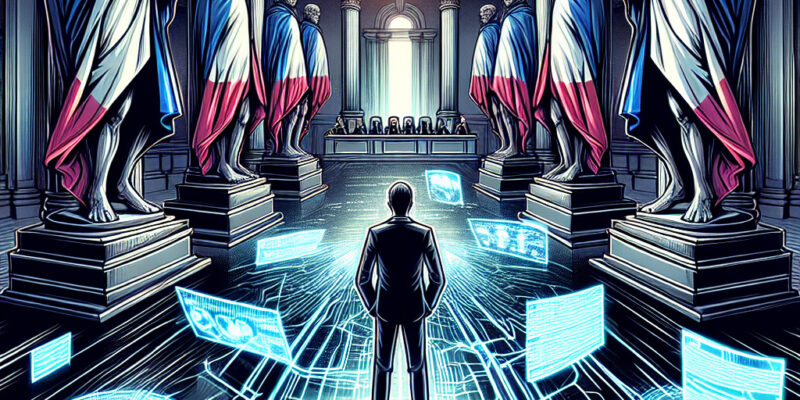Telegram CEO Durov Slams Frances Absurd 2024 Arrest Rules

The global tech community often faces hurdles that test the resilience and adaptability of its leaders. In this ongoing saga of regulatory challenges, Telegram CEO Pavel Durov finds himself navigating one particularly labyrinthine legal journey in France. His recent criticisms of the French legal system are making waves, reflecting larger tensions between tech innovators and regulatory bodies worldwide.
Pavel Durov, a name synonymous with secure messaging and resilient tech entrepreneurship, is no stranger to controversy. In recent months, he has been outspoken about a legal predicament that requires him to revisit France every two weeks. This mandate stems from an arrest last year, which continues to hang over him like a cloud with no clear resolution in sight. For many, Durov’s situation underscores an underlying friction between fast-paced tech innovation and traditional legal frameworks that may lag in understanding or adapting to new technological realities.
To understand the significance of this ongoing battle, it’s essential to consider the broader context of Durov’s work and Telegram’s core philosophy. Telegram, launched by Durov and his brother Nikolai in 2013, swiftly gained recognition for its emphasis on end-to-end encryption and user privacy. These were features that set it apart from other messaging services, often putting it in the crosshairs of governments eager to maintain control over digital communications within their borders. Yet, it was precisely this unyielding commitment to privacy that won Telegram acclaim among users who valued security in a digital age ripe with surveillance.
Durov’s current legal obligations in France stem from his arrest in 2022, a case wrapped in its own set of complexities and often murky details. Critics of the situation argue that such legal requirements appear draconian and possibly ineffective in achieving any meaningful regulatory control, while supporters claim they are necessary measures in the broader fight against digital misconduct.
The requirement for Durov to journey to France fortnightly is not just a logistical burden; it speaks to a deeper systemic issue. This lack of a clear timeframe for legal appeal or resolution adds to the quagmire, creating an atmosphere of uncertainty that can stifle innovation and exhaust resources, both personal and corporate. The tech industry, often characterized by its need for rapid development and adaptability, thrives on predictability and freedom—freedom to innovate, to disrupt, and to sometimes challenge the status quo.
Further complicating this scenario is the landscape of international regulation of technology and privacy. Countries often have disparate legal frameworks, each evolving at its own pace, which can create significant headaches for global entrepreneurs like Durov. The balance between protecting national security interests and fostering technological innovation is delicate, and finding that sweet spot often involves navigating numerous obstacles.
For many, Durov’s predicament serves as a cautionary tale of the potential pitfalls awaiting those at the forefront of digital transformation. It highlights the ongoing debate over how societies can best balance the need for security and regulation with the benefits and freedoms offered by technological advancements. France, a country with a rich tradition of technological development and innovation, must carefully consider how its legal processes impact global innovators residing under its jurisdiction.
As the saga unfolds, it offers a mirror to other countries and tech leaders, urging them to consider how regulatory frameworks can adapt to the changing landscape without stifling innovation. There are no easy solutions, but dialogue and engagement across borders and sectors are vital to developing fair, effective regulations that foster innovation while protecting public interests.
In the end, what lies at the heart of Durov’s situation is a fundamental question about the interplay between governance and technology. As tensions continue to simmer, the tech world watches closely, conscious that the outcomes may well shape future interactions between global innovators and national legal systems. Whether Durov’s travels to France eventually lead to resolution or further complications remains to be seen. For now, his journey reflects the broader trail of challenges faced by those at the cutting edge of technology in a world still coming to terms with digital sovereignty and control.













